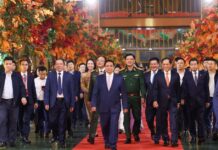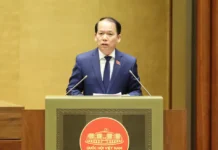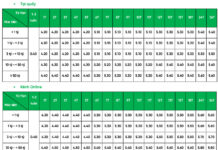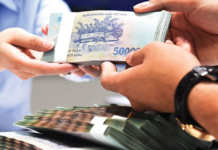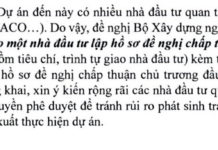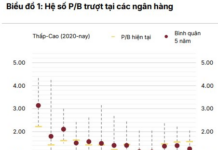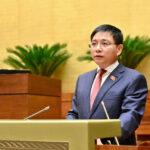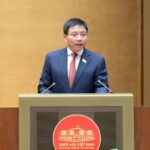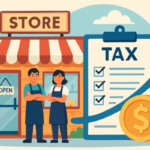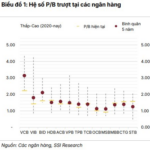“Selling and Buying Simultaneously: Citizens Lose 2.5% Instantly”
On the afternoon of November 5th, the National Assembly held group discussions on the draft amendments to the Law on Tax Administration, the Law on Personal Income Tax, and the Law on Thrift and Waste Prevention.
According to Delegate Hoang Van Cuong (Hanoi delegation), adjusting personal income tax is essential. Over the past period, prices, incomes, and personal spending have fluctuated significantly, necessitating timely adjustments.
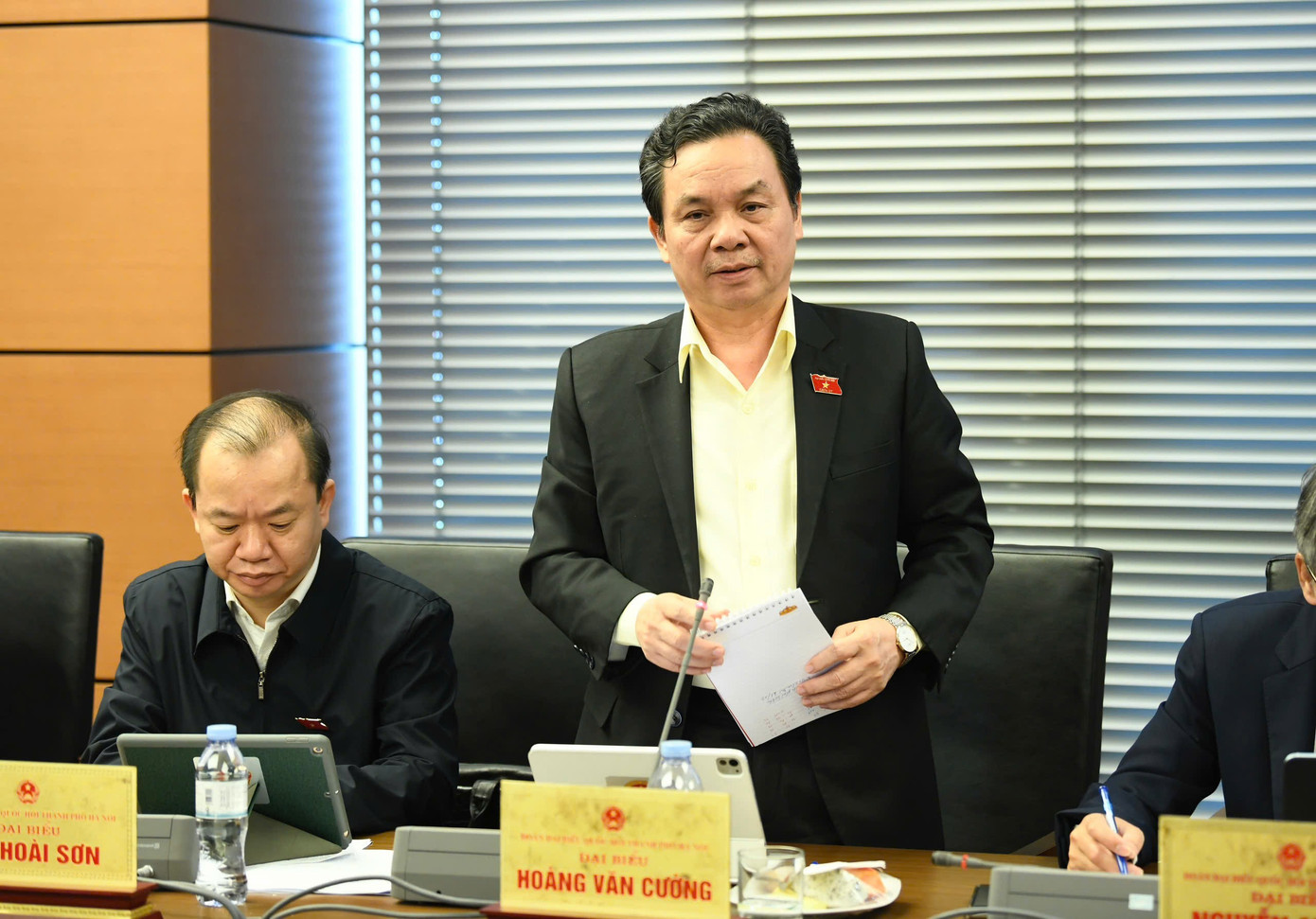
Delegate Hoang Van Cuong. Photo: Nhu Y.
Regarding taxes on income from the transfer of real estate and gold, Mr. Cuong noted that the current 2% tax on the selling price is unreasonable. For instance, someone selling their only house to buy a more suitable one must immediately pay a 2% transfer tax, then an additional 0.5% registration fee when purchasing the new home.
“This means that by selling and buying, citizens instantly lose 2.5%. Meanwhile, speculators who repeatedly buy and sell to profit from land price differences also pay only 2%. This is clearly unfair,” said Mr. Cuong.
According to the delegate, many countries have addressed this issue effectively. In South Korea, for example, those who buy and sell within a year are taxed up to 60% on the profit to curb land speculation. Conversely, those selling their only home or buying another for residential purposes are exempt or receive significant tax reductions.
He emphasized that with Vietnam’s digitized land and real estate data system, it is entirely possible to track who buys, who sells, when, and at what price. Therefore, a flexible tax policy should be applied: exempting taxes for those selling their only home and imposing higher taxes on short-term speculative transactions.
“This would not only make the real estate market healthier but also redirect capital into productive business activities instead of speculative land investments, which cause artificial price spikes and distort the economy,” stated Mr. Cuong.
Regarding gold, the Hanoi delegate noted that the proposed 0.1% tax on transactions is somewhat unreasonable, as gold is primarily a stored asset, sold only when necessary.
“Taxing stored assets is a matter worth considering. While 0.1% isn’t high, it still requires careful examination,” said Mr. Cuong.
Furthermore, when domestic gold prices exceed global prices, gold imports increase. Importing gold requires foreign currency, leading to USD outflows, foreign exchange shortages, and exchange rate fluctuations, complicating monetary policy. Rising exchange rates directly impact exports and production.
“Therefore, managing and stabilizing the gold market is essential to prevent excessive imports that disrupt foreign exchange balances. Taxing gold can be seen as a market stabilization measure, especially during periods of unusual volatility,” added the Hanoi delegate.
However, he suggested that this tax policy should not be permanent but rather a temporary measure applied during specific periods of market instability. The government should have the flexibility to impose specific tax rates for short durations, such as a few months or half a year, to stabilize the market.
“In this case, taxes are not a budget revenue tool but a regulatory instrument, enabling the government to respond proactively to unusual fluctuations. This approach is more appropriate,” he concluded.
Distinguishing Between Gold Speculation and Storage
During the discussion, Delegate Le Thi Thanh Lam (Can Tho delegation) also addressed the “hot” issue of gold bar transfers, which has drawn significant public attention. The drafting agency stated that the proposal aims to control speculation and increase market transparency.
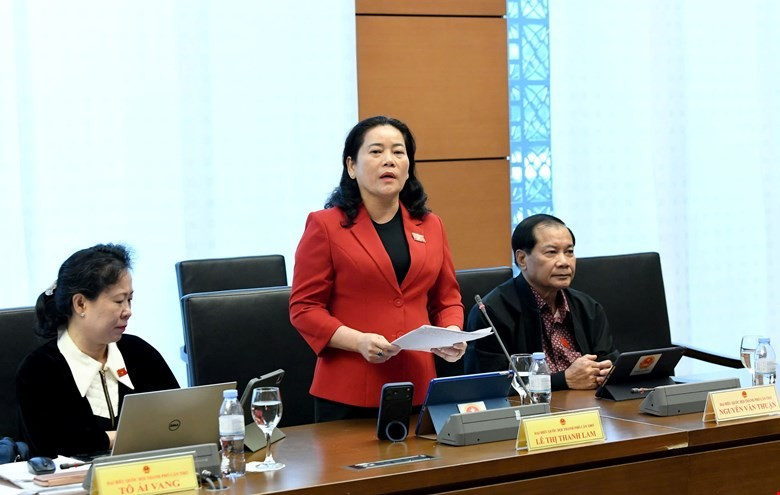
Delegate Le Thi Thanh Lam.
However, Ms. Lam stressed the need to clearly distinguish between speculation and storage to avoid impacting citizens who buy gold solely for savings purposes.
“Most Vietnamese citizens, when saving money, buy gold for household savings rather than speculation,” she noted, emphasizing that people typically store gold for long-term savings. Therefore, personal income tax on gold bar transfers should differentiate between speculation and storage to avoid affecting those who buy gold for savings.
The Can Tho delegate also recommended establishing a flexible declaration and deduction mechanism. This would allow gold trading organizations, exchanges, or commercial banks to handle tax deductions and payments on behalf of individuals, reducing administrative burdens.
Consideration of Taxation on Gold Bullion Transfers: A Statement by Mr. Phan Van Mai
The Economic and Finance Committee recommends careful consideration of imposing taxes on gold bar transactions to prevent undue burdens on citizens.
Boost Family Deduction Threshold: Millions of Households Gain Extra Spending Power
Elevating the personal tax deduction to $15.5 million VND/month for taxpayers and $6.2 million VND/month for dependents fulfills a long-standing aspiration of the public. Beginning in 2026, approximately 2.18 million individuals will be exempt from taxation, significantly boosting domestic consumption.
Maximize Your Taxable Income Potential
The Standing Committee of the National Assembly has issued a resolution adjusting the personal income tax deduction for dependents, increasing it from the current 11 million VND per month to 15.5 million VND per month.


